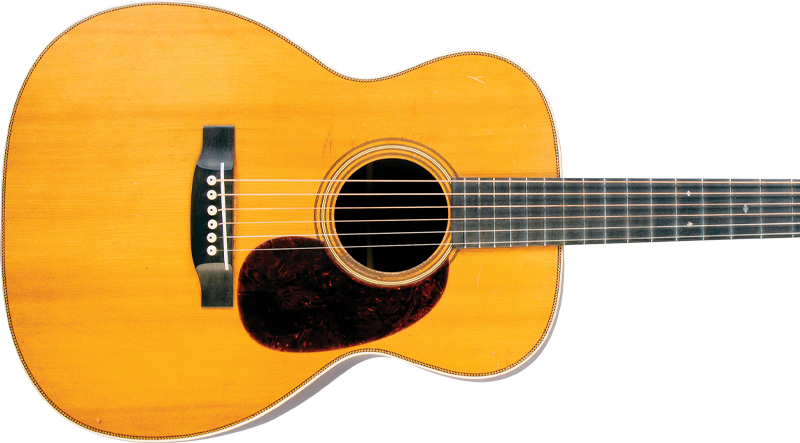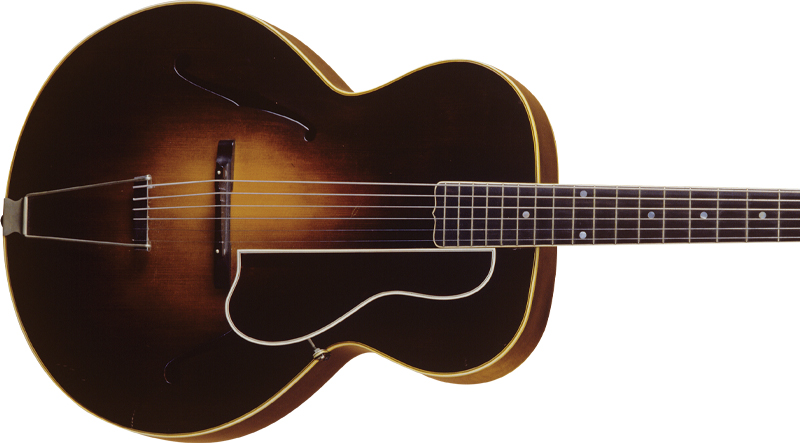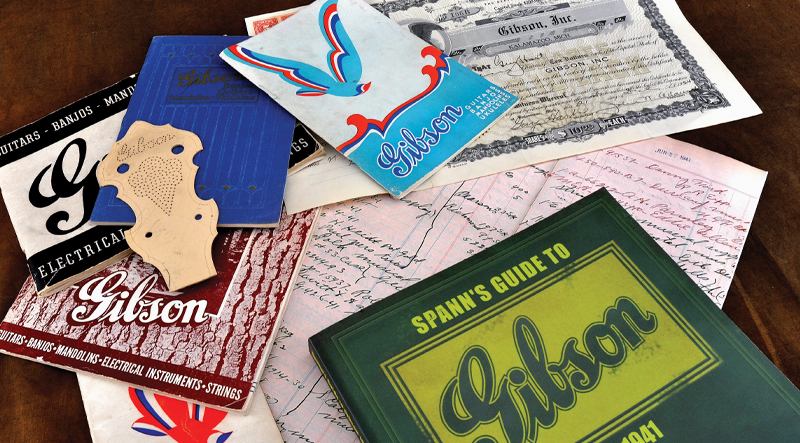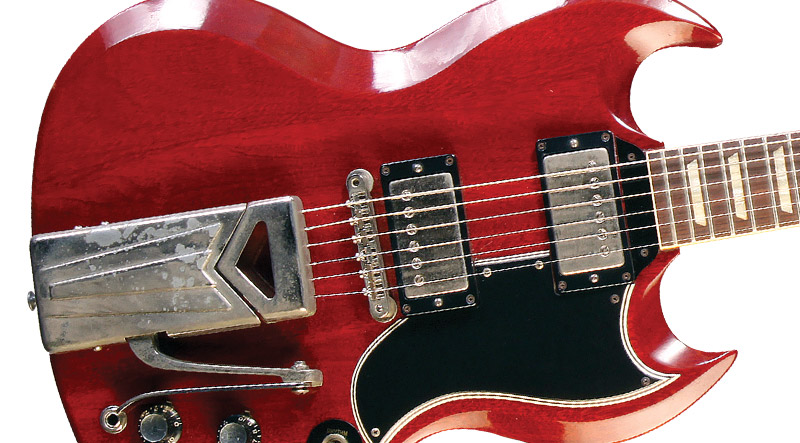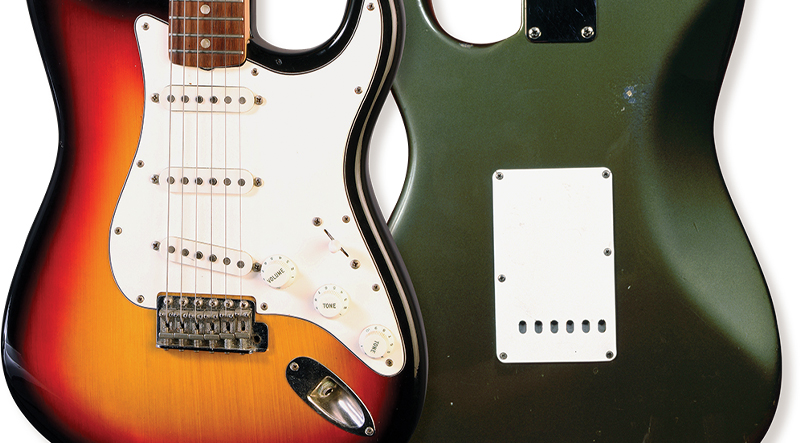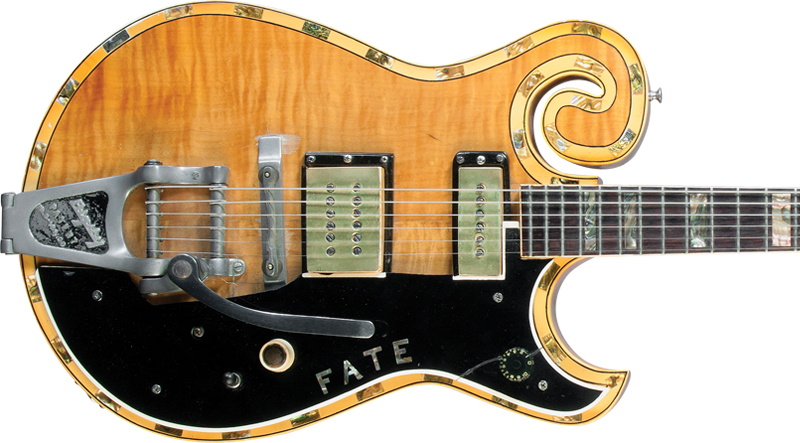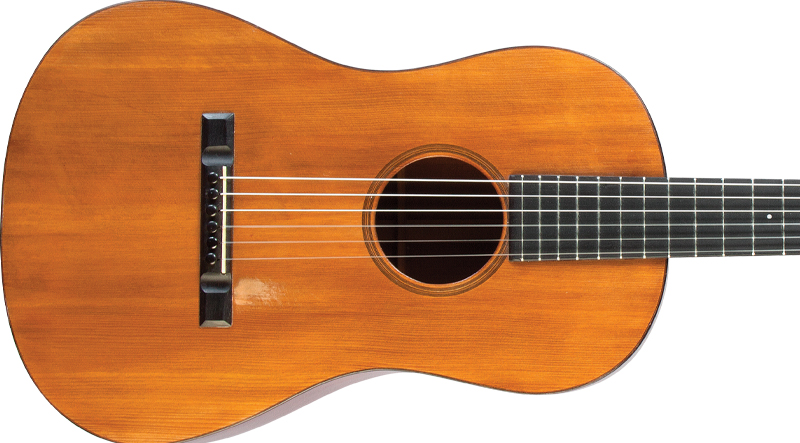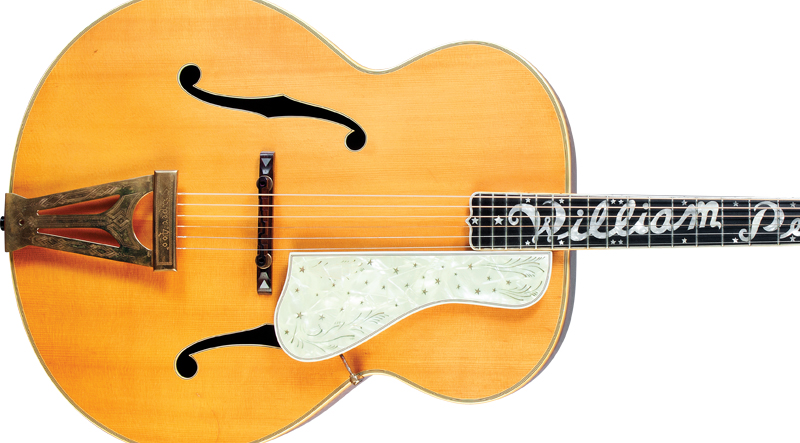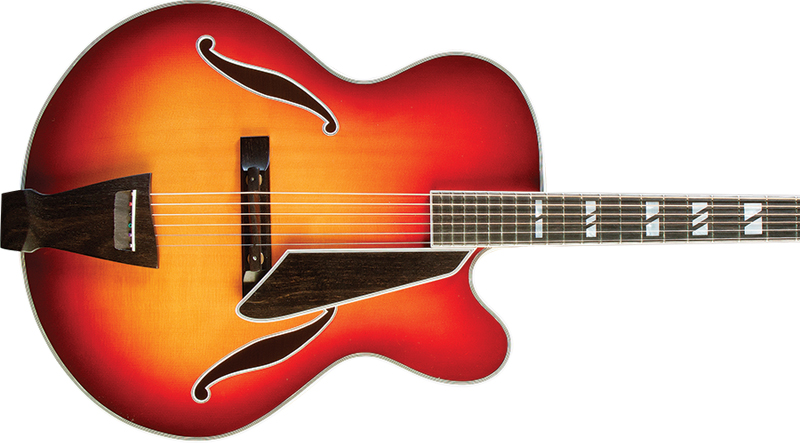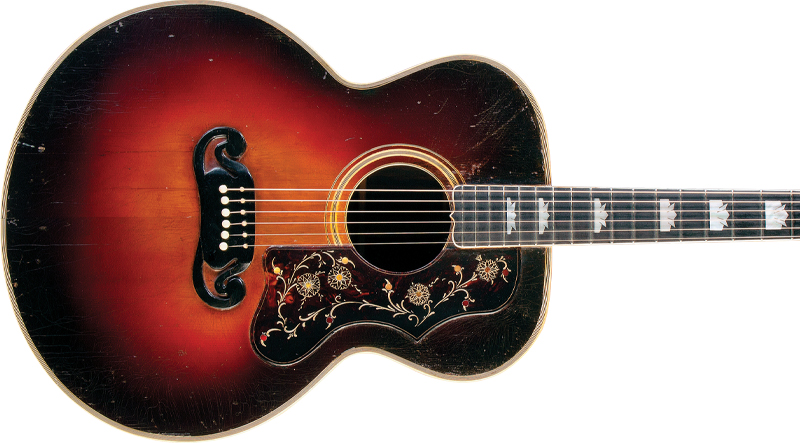-
George Gruhn
The Real Story of Martin’s 14-Fret Orchestra Models
OM Irony
Martin Orchestra Model (OM) guitars made prior to World War II are some of the finest ever made for fingerpicking. That’s rather ironic, considering they were created specifically for flatpickers. • Much has been written about the OM-28, but some of that info, including how it was designed for Perry Bechtel, is a bit misleading.
-
George Gruhn
Lloyd Loar
An Alternative View
The Master Model instruments created at Gibson in the early 1920s are famous for their sound and build. Credit for their design is often laid at the feet of “acoustic engineer” Lloyd A. Loar, but recent study calls into question the role he played – and may even position him as a mere tool of
-
George Gruhn
Vintage Instrument Research
An Ever-Changing Landscape
Fretted instruments can be examined in much the same way as zoological taxonomist or forensic pathologist would approach them. They fit well into a Linnaean taxonomic order, and in fact that is very much the approach we use in identifying and dating fretted instruments. In addition, these instruments can be examined much the same way
-
George Gruhn
The Les Paul Becomes The SG
Double Time
It may be difficult to imagine now, but Gibson’s original Les Paul was only a modest success. Introduced in 1952, the Gibson Les Paul Model (a.k.a. goldtop) reached peak production in ’53, when 2,245 were shipped before sales failed to meet expectations and subsequent production totals were adjusted downward. Gibson introduced the “black beauty” Les
-
George Gruhn
The Strat in Transition
Leap Forward, Step Back
Believing the long-term survival of his company hinged on creating the world’s best electric guitar, in 1953, Leo Fender set out to improve on his own Telecaster before Gibson or Epiphone could take their shots at supplanting it atop the solidbody market. And from the moment it was introduced in ’54 – two cutaways, body
-
George Gruhn
The Story of Jay Gower
Startup in Music City
In Nashville today, there are enough professional luthiers to meet the need for guitar repairs, modifications, and custom builds. In the 1950s, though, musicians typically returned broken instruments to the manufacturer and often waited months or years for them to be returned, sometimes with sub-par results. That was especially true with instruments made prior to
-
George Gruhn
Ditson’s Style 11 and the Birth of the Dreadnought
Martin’s Big Step
In the early 20th century, any shopper who walked into the Charles H. Ditson & Company music stores in New York, Philadelphia, or Boston could have bought a guitar, bowl-back mandolin, or ukulele made by Martin. Ditson initially approached the venerable builder simply to fill a niche in its product line, then a bit later
-
George Gruhn
William Peale, Jr. Gibson Super 400
Sharp-Shooter Special
The iconic “singing cowboy” was created by Hollywood actors like Gene Autry, Roy Rogers, Tex Ritter, and others. Many used fancy, customized guitars, often with their name emblazoned on the fingerboard, and the majority were high-end flat-tops including Martin D-45s and Gibson J-200s. This 1940 Gibson Super 400N was made for a genuine Texas cowboy
-
George Gruhn
Mel Bay D’Aquisto
Teacher’s Aid
Melbourne “Mel” Bay (1913-1997) began his musical career at the age of 13 in his hometown of Bunker, Missouri. Largely self-taught, as a teen he performed on guitar, tenor banjo, Hawaiian guitar, ukulele, and mandolin. At 20, Bay moved to St. Louis seeking work as a professional sideman with traveling bands and on radio. To
-
George Gruhn
Rosalie Allen’s SJ-200
Trophy Flat-Top
On the pages featuring the Super Jumbo 200, Gibson’s 1940 catalog trumpeted, “This king of the flat-top guitars was especially created for professional entertainers who want an instrument adaptable to any harmony requirement with a beauty and distinction that projects itself to an audience.” Beauty and distinction indeed! It really was an impressive instrument –

